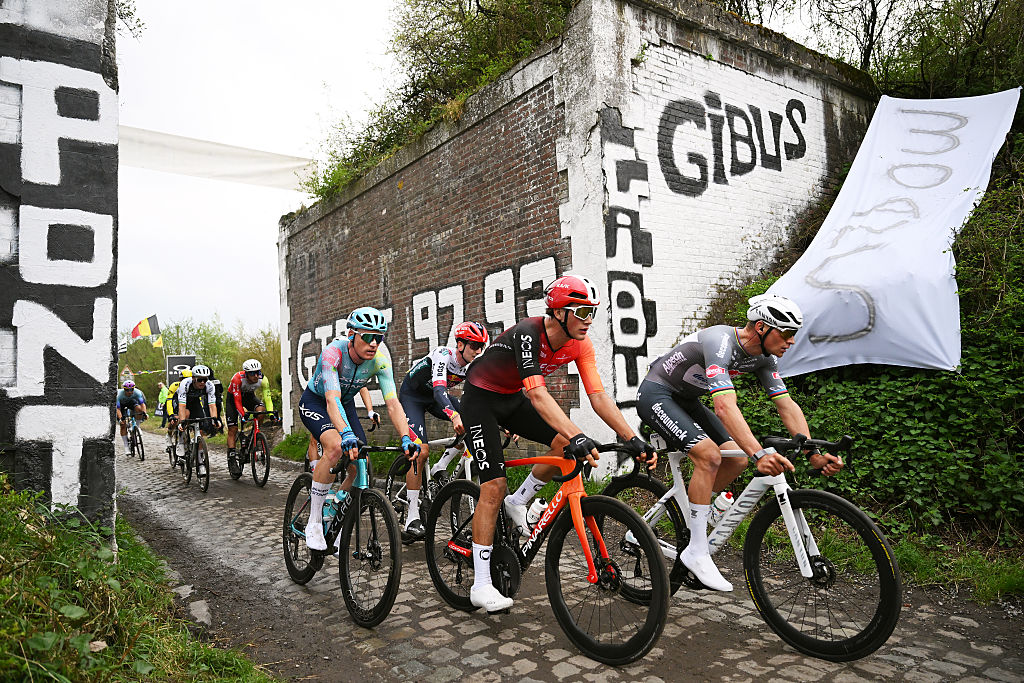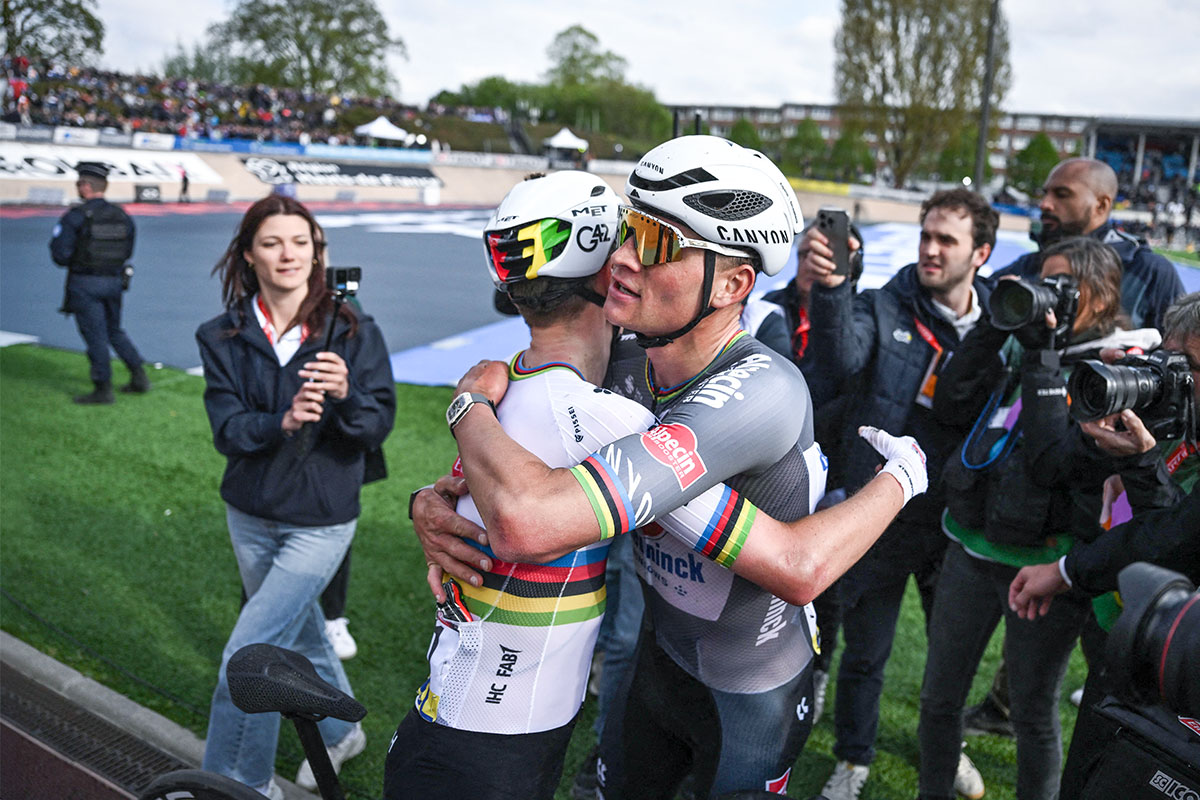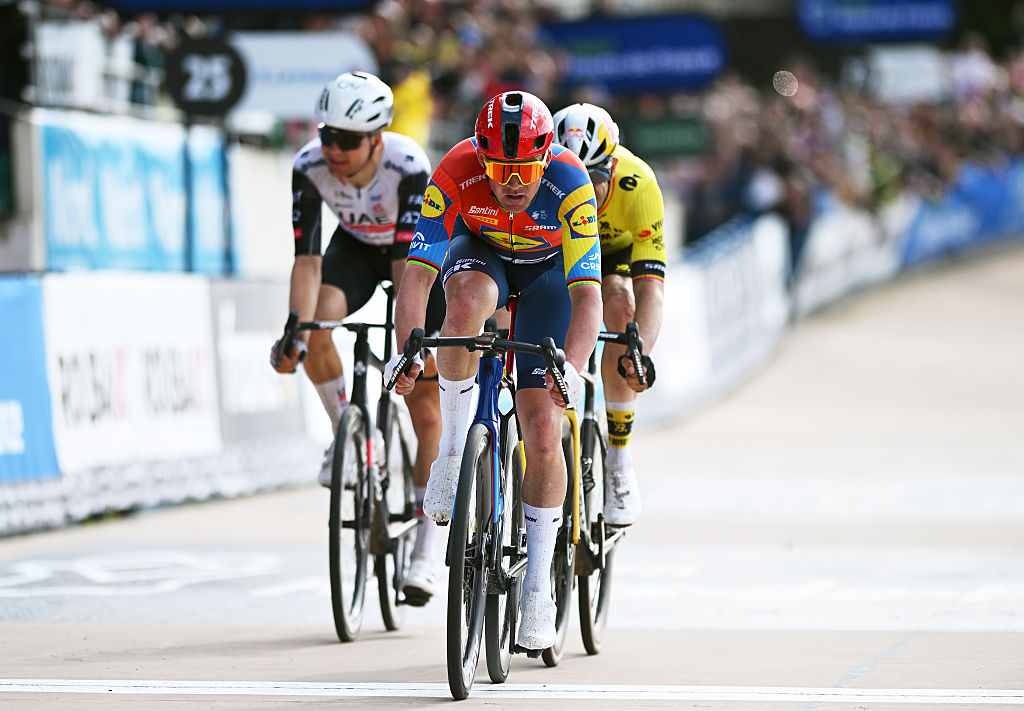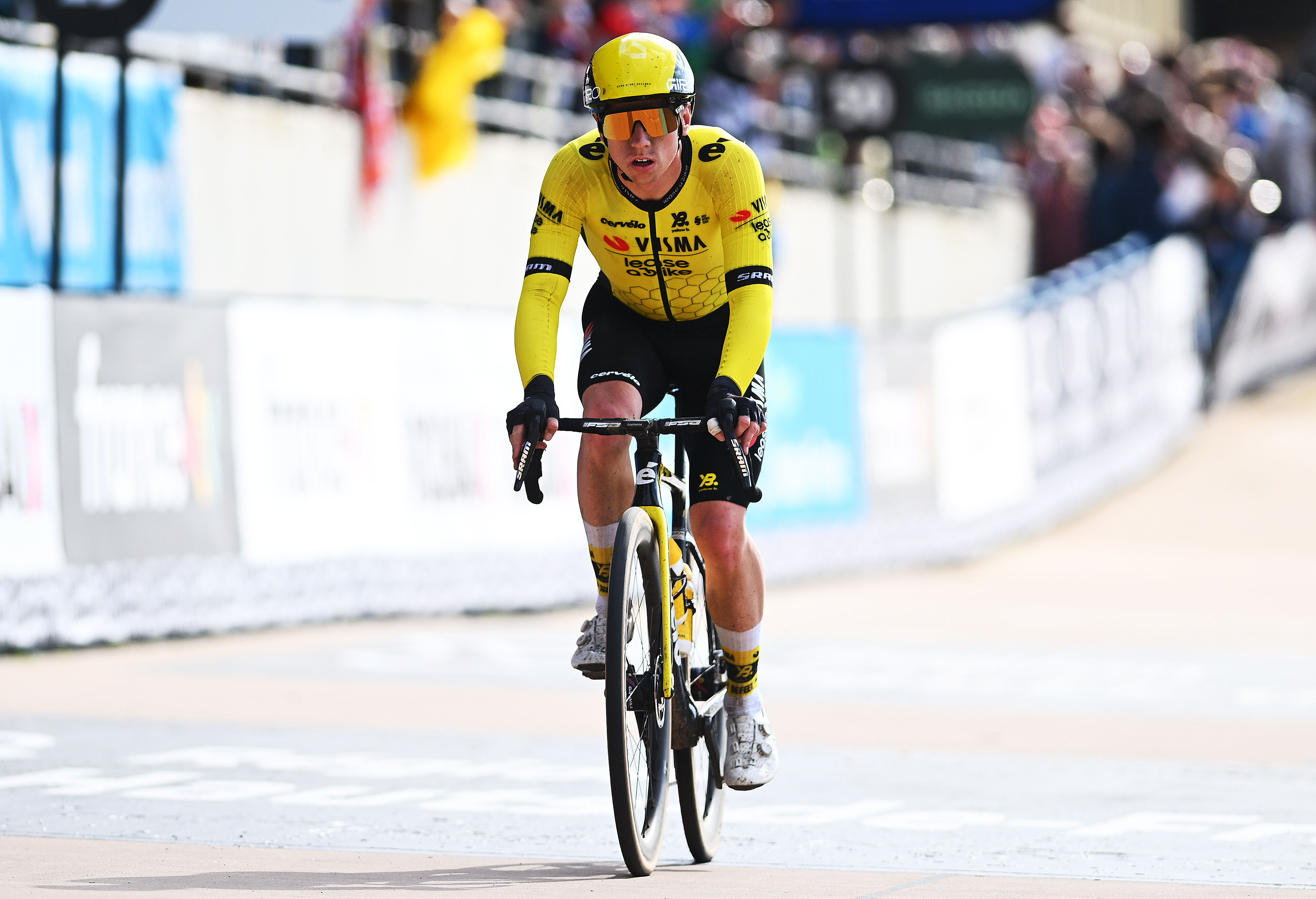Tour de France 2016: Race preview
Tour de France Countdown: 10 days to go!
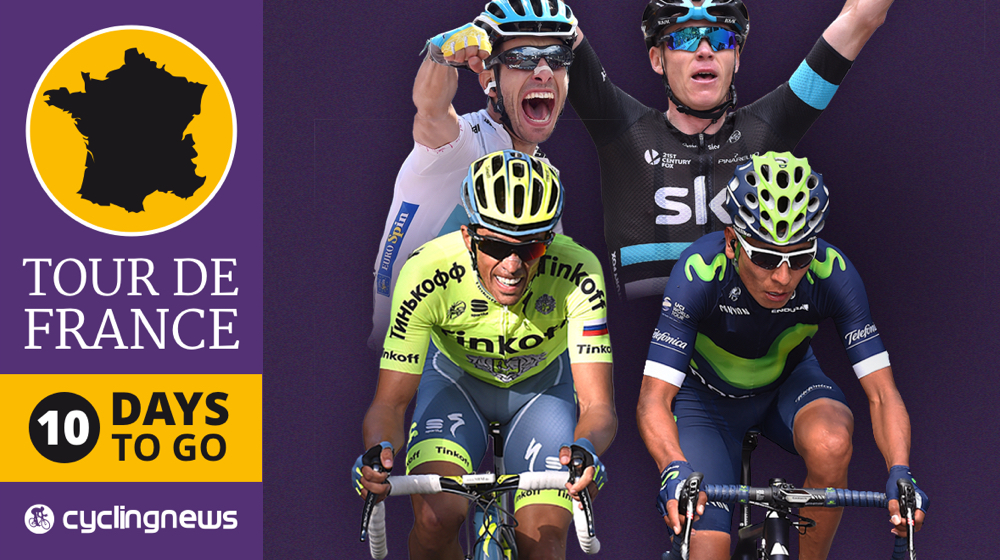
The Tour de France Contenders
Chris Froome will be looking to make history and win his third Tour de France – a win that would put him level with Greg LeMond – but no rider has defended his title since Lance Armstrong and Miguel Indurain, so the pressure will be on.
The Team Sky rider has been in fine fettle, though, defending his Critérium du Dauphiné crown and beating Alberto Contador (Tinkoff) and Richie Porte (BMC) in the process.
Both Porte and Contador will be looking to take the fight to Team Sky but both riders have their weaknesses. Contador doesn’t have a team that – on paper at least – can match Sky or Movistar in the mountains and, despite beating Froome in the mountain time trial at the Dauphiné, he does not have the zip he once did.
Porte has never made the top five in a Grand Tour and, like his teammate Tejay van Garderen, is susceptible to a bad day in the mountains. The pair both have realistic aims of reaching the podium in Paris, although one suspects that one half of the BMC leadership will have to lay down arms and support the other.
Nairo Quintana (Movistar) may have bypassed the Dauphiné once again in favour of the Route du Sud but the Colombian remains the most dangerous of the GC men. There’s still a genuine belief that we’ve not seen the best of the climber at the Tour de France and if he can string everything together this year then the top step on the podium is within reach.
The home-grown challenge comes from Romain Bardet (AG2R La Mondiale) and Thibaut Pinot (FDJ) – who have both made strides this season. The AG2R leader is yet to win a race in 2016 but his storming Dauphiné performance, where he was second overall, was full of verve and panache. Pinot has improved against the clock and although was not consistent in his final pre-Tour race, he still warrants the attention of his GC rivals.
Fabio Aru (Astana) is this year’s unknown quantity having altered his programme and switched from the Giro d’Italia to the Tour de France. The assured Astana man, who won the Vuelta a España last year, has the qualities to succeed at the Tour and while he is making his debut this time around, with the the pressure off to some degree, he will be expected to mount a serious challenge.
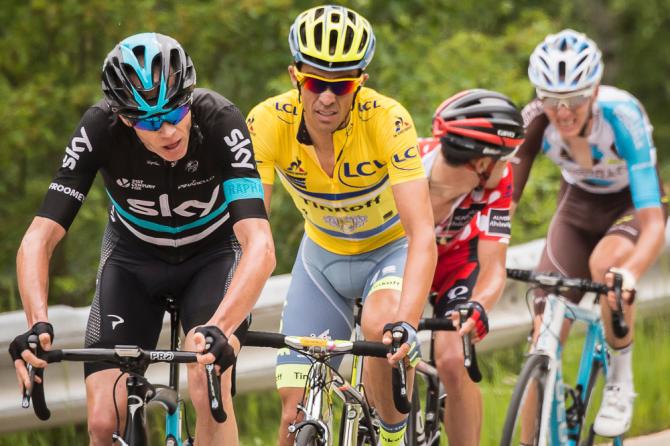
The Tour de France route
The 2016 Tour de France may on paper favour the climbers but to wear the yellow jersey into Paris will take a rider with all-round skills against the clock and in the mountains.
The race starts in Normandy with the picturesque Mont-St-Michel providing a fitting backdrop for the Grand Départ. The first stage then washes up along the coastal roads and towards Utah Beach. Marcel Kittel (Etixx-QuickStep) has won two flat opening stages in the Tour during his career, and the German will once again start as the favourite. With no climbs en route and a robust team to protect him in the cross winds, Kittel will be looking to establish his dominance early on.
The race lead will almost certainly change hands on the following day with a third category climb – the Côte de la Glacerie – providing a testing finish. The GC men are unlikely to lose or gain time but this is somewhat similar to a Mur de Bretagne, and suits a punchy rider who can hold off a galloping bunch and time his acceleration perfectly. Dan Martin, Michael Matthews, and Peter Sagan are all candidates.
Stages to Angers – where Tom Boonen won his first Tour stage in 2004 – and Limoges follow, and while nerves will be fraught and legs will be fresh, the sprinters should dominate.
Stage 5 may be a grand total of 216 kilometres in length but the main threat comes in the difficult nature of the terrain – especially in the second half with five categorised climbs inside the final two or so hours of racing. There’s barely a metre of flat road throughout and controlling the stage will be a major task. Robert Millar pin-pointed this as a stage for Contador to set an ambush. It’s hard to argue with Cyclingnews’ favourite Scot.
The following stage is perfectly made for a long break while stage 7 sees the race enter the Pyrenees with the Col d’Aspin on the menu. In recent years, ASO have kicked off the first mountain stage with a summit finish – perfect for Team Sky’s style – but this time the Col d’Aspin is followed by a descent. Expect attacks on both sides of the summit, with the pure climbers hoping to put the boot into anyone struggling to adjust to their mountain gears.
Pau to Bagneres-de-Luchon is quite possibly the hardest stage of the entire Tour with the Tourmalet, Hourquette d’Ancizan, Col de Val Louron-Azet and Col de Peyresoude bracketed together inside 184 brutal kilometres. It’s the reverse of the stage on which Movistar blew most of Team Sky away in 2013. Michael Rogers and Thomas Voeckler (twice) have won in Luchon in recent years, while Rodolpho Massi (Casino) – remember him – won in the rain in 1998. If Sky are in yellow they could face a stern examination, with Movistar, Astana and Tinkoff all capable of sending riders up the road in a bid to isolate Froome.
The final outing before a well-earned rest-day will see the first real summit finish of the race with the climb up to Andorre Arcalais. The terrain saw Jan Ullrich decimate the field in 1997. This time the parcours will allow the GC teams to soften each other up on the climbs proceeding the final assault to Arcalais. Heading into the first rest-day, we will have a real idea as to who can realistically win the Tour and who will need a miracle.
Rest to Revel
If only ASO had shortened this stage to just over 100 kilometres of racing. As it is the 197-kilometre stage 10 from Escaldes-Engordany to Revel is suited to a breakaway. The riders first need to clamber up the Port d’Envarlia which, coming right after the gun, could cause utter mayhem. Alas there’s enough flat terrain for any shocked systems to pull themselves back into contention, while the short punchy third-cat climb before the finish could well play a part in the race. Where were you on July 15,1995? Watching Serguei Outschakov win in Revel, is the correct answer.
After a flat-track day to Montpellier for the sprinters the race returns to the mountains with a stage to Mont Ventoux. Froome won here in 2013 with one of the most incredible performances seen in recent years, and this is very much a typical Ventoux stage – nothing much will happen for four or so hours and then the GC contenders will take the road from Bedoin and fight it out to the summit. It’s Bastille Day so the home-grown non-climbers will be looking to slip into a break, and Bardet and Pinot will be looking to drop their rivals on the climb.
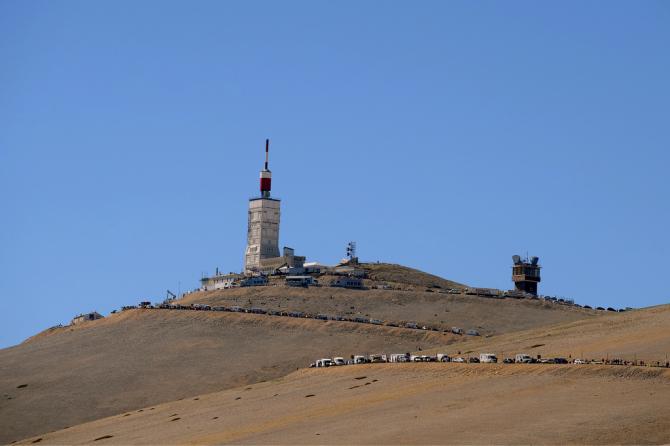
Two worlds Bolide in time trial
A time trial but not your typical flat-trap course and certainly not your long 50-60km effort that now seems to be consigned to the dustbin by the race organisers. Instead, ASO have, rather wisely, handed out a tough, undulating 37-kilometre test to La Caverne du Pont d’Arc. With just 54km of timetrialing in this year’s race, this is the only chance for the purer time trialists to take advantage. Perhaps rather symptomatic of today’s peloton and Grand Tours, pure time trialists with GC ambitions are a rare break, so what we can expect is Froome, Contador, Pinot and Quintana duking it out for GC seconds rather than stage honours. If Tom Dumoulin is still in the race then this is perfect for him ahead of the Olympics.
After a transition stage the Tour returns to the Jura mountains for six categorised climbs - the most in a single stage this year. With 14 kilometres between the final ascent and the finish line, it’s hard to predict how crucial the stage will be but after a fortnight of racing the gaps could be significant. If teams take up the challenge over the opening climbs then this 160-kilometre stage could lead to carnage.
Stage 16 to Berne should see the remaining sprinters in the race shine but the following day to Finhaut-Emosson begins a block of four stages that will ultimately decide the race. The race whizzes passed the UCI HQ before taking on the Col des Mosses. There’s a brief lull before the road rises sharply with the Col de la Forclaz (first category) and the final summit finish to Finhaut-Emosson. As Alpine stages go it’s a tough opener and after a rest-day there will be an air of unpredictability as riders get to grips with being back in the saddle.
Mountain time trial
The Tour hasn’t held a mountain chrono since Lance Armstrong blistered up Alpe d’Heuz in 2004 – or Evegini donned blue socks with the yellow jersey in 1996 if you’re being nostalgic – but the format returns this year with a 13.5km test to Megève. The first 4km are flat before the road twists upwards. The gradient is never constant and the changes in pitch and rhythm will suit Contador and Quintana down to the ground. The final section is flat, with a slight descent before the line, and while the gaps will be important, the GC rivals will be watching for any further cracks ahead of the final two mountain stages.
The final push before Paris
Stage 19 from Albertville to St-Gervais Mont Blanc-Le Bettex could be the most explosive stage of the race. At just 146km in length, with four climbs and the final summit finish of the race, it offers a huge opportunity for those still dreaming of podium ambitions – or those simply with some fuel in the tank – to go on the offensive. The Montée de Bisanne is a new climb for the Tour and the road between it and the final climb is far from flat. Remember Contador going for broke on the stage to Alpe d’Huez in 2011? We could see something akin to that here. Whatever the outcome, this has all the hallmarks of being a phenominnal day of racing.
The final day in the mountains and the final chance for the GC contenders is a pure classic. Whereas stage 19 saw new features and climbs, the penultimate stage returns to tradition, with the Col del Arvais and the Col de la Colombière in the first half of the 146km stage. The Col de la Ramaz is a brute and could see the GC contenders clash, all before the final climb of the Joux-Plane and the descent into Morzine.
From there, the race heads north for it’s final stage and the well-earned procession through Paris.
Get The Leadout Newsletter
The latest race content, interviews, features, reviews and expert buying guides, direct to your inbox!
Latest on Cyclingnews
-
'I felt good after Arenberg but the lights just went out' - Josh Tarling hit by eating problem at Paris-Roubaix
Ineos Grenadiers forced to chase from first sector of cobbles, after Filippo Ganna's mechanical issue -
'For sure, he'll be back' – Mathieu van der Poel expects Tadej Pogačar to return to fight for Paris-Roubaix win
Dutchman battles through broken radio and power meter as well as a late puncture to solo to third Roubaix win in a row -
No 'ifs' for Mads Pedersen despite suffering puncture from lead group at Paris-Roubaix
Dane scores second podium place in as many years after suffering front wheel puncture 71km from finish -
'Van Aert told me to go for my own opportunity' - Youngest rider Matthew Brennan impresses as Belgian misses Paris-Roubaix podium
Van Aert finishes in fourth after crash, as Briton rode aggressively and made the lead group before fading
